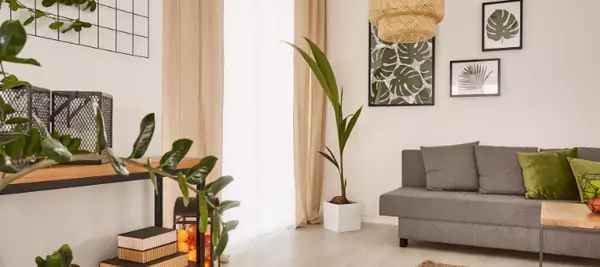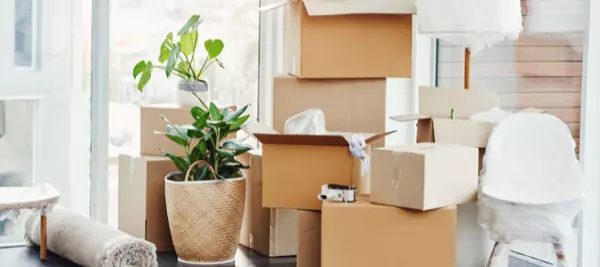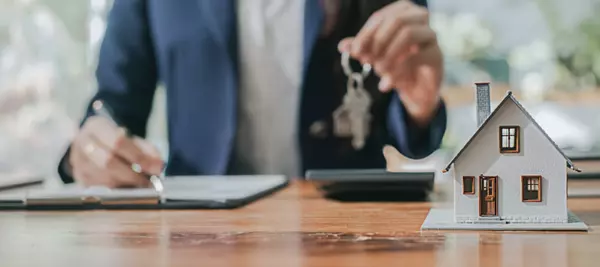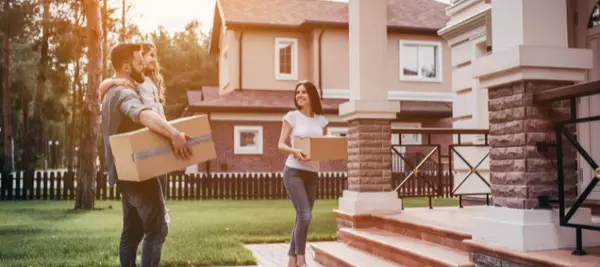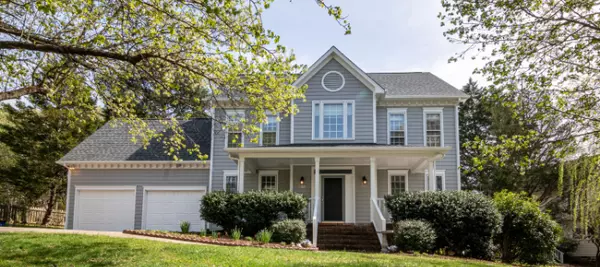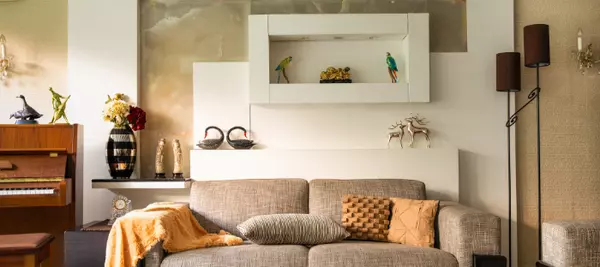How to Know if an Apartment is Right For You?
How to Know if an Apartment is Right For You?
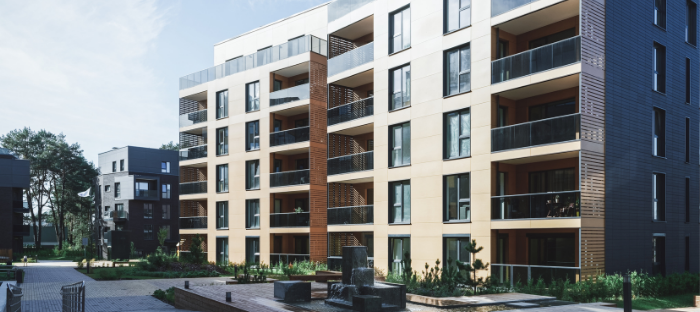
Whether it's your first apartment or you're thinking of moving and don't want to repeat some mistakes, this was written for you. Here are the questions you need to ask yourself, the landlord, and your real estate agent.
What neighbourhood is it in?
This is a critical question because apartment buildings gain a lot of value based on where they are located and that value is something you can directly feel with how much rent you need to pay.
Is the neighbourhood safe?
First things first, is the neighbourhood safe? You don't want to be living in an area where you feel uncomfortable or unsafe. Spending some more money to feel safe is a good trade. You can make up for it with balancing other expenses.
Asking the landlord or, more realistically, a real estate agent will help you determine whether it's worth going through the application process at all. Though apartments in 'rougher' neighbourhoods have lower rent, it may not be worth it. Not even as a first apartment.
Of course, if it can't be helped, then make sure the apartment building itself is safe with buzzers and locked doors.
What is public transportation like?

If you rely on public transportation, make sure you know how good the system is in the neighbourhood. You don't want to be walking a kilometre in the cold to catch your bus.
This is something you can check online using Google maps but it's best to be there in person to see where the stops are and how much walking distance you're willing to put up with.
Does the neighbourhood fit your lifestyle?
Some people love small apartments with bustling outdoor revelry, a rising noise level and sirens are their rallying calls. Others may prefer quieter spaces where a good distance from the street-level noise and tranquil streets are must-haves.
Take a stroll through the neighbourhood at different times with friends to find out if the apartment would suit you.
Are there enough shops that fit in your budget?
If you're a foodie who loves to cook but hates going grocery shopping, make sure the neighbourhood has a grocery store or at least some convenience stores nearby.
The same thing goes for other essentials that you may need like pharmacies, dry-cleaning, etc. It's not just a question about the variety of stores, although that's important too, it's about whether the shops can allow you to live both your lifestyle and make enough to pay your monthly rent.
How close is it to your workplace?
Depending on how long your commute is, you may want to make sure the apartment is close to your workplace. Remember, it's not just distance, it's the time it takes for you to get there. Are the subways, trams, or busses crowded often? Can you walk to work on a nice day?
If you're working a nine-to-five job, then waking up an extra hour early just to spend more time travelling isn't ideal. However, if you find somewhere to spend the time in the city before heading to work, a quick commute early in the morning might be worth going to sleep early.
How can you tell what the neighbourhood is like before living there?
If you're not sure if the neighbourhood is right for you, there are a few ways to check it out before even applying for the apartment.
The first way is to go on Google Street View and look around. If you're looking at an area that's close to your workplace, for example, you can see what the commute looks like.
The second way is to go on websites like Walk Score. This website rates how walkable a neighbourhood is by giving it a score out of 100. The higher the score, the more walkable the neighbourhood is.
The third way is to look on social media for people who live in the area. See if they have any pictures or posts about their neighbourhood. You can also ask them questions about the area.
The fourth way is to go on apartment listing websites and look for neighbourhoods that interest you. Once you find a neighbourhood, scroll down to the reviews to get an idea of what people think about the area.
The fifth way is to go to the neighbourhood itself and take a walk. Talk to people who live there and get their opinion on the area.
The sixth way is to go to the local police station and ask for crime stats. This will give you an idea of how safe the neighbourhood is.
Ultimately, it's up to you to decide what's important and what you value most when it comes to the neighbourhood you want to live in.
How nice is the apartment?
Let's now look at the apartment itself. Before you start to pay rent, it's a good idea to think about what the perfect apartment would be and what compromises you're willing to make and what is on your must-have list.
Does the apartment have enough space for you?
Some people are content with living in a small space, while others want more square footage. It's important to remember that the further away you are from the city centre, the bigger the apartment will be.
Are the ceilings high?
This is something that not everyone cares about, but some people do. A high ceiling makes the whole space feel bigger, and it could also help with some storage space. And you don't mind a step-ladder from time to time.
Is there enough storage space?
This is especially important if you have a lot of clothes, shoes, or other belongings that need to be stored. If you're lucky, the apartment may even have a separate closet for coats and shoes. Can you store groceries somewhere convenient? It will take just a few months to feel like you're paying rent, a good portion of your monthly income, just to cramp yourself between makeshift containers and piles of stuff.
Do you have enough natural light?
Some people prefer to have a lot of natural light in their apartment, while others don't mind living in a dark space. If you're someone who likes to wake up with the sun and spend time outside during the day, then you'll want an apartment that has a lot of windows.
Keep in mind, even if you like more subdued lighting that sunlight has a lot of health benefits. It's better to rent an apartment where you have the choice to open or close your curtains.
How thick are the walls?
This is important if you're someone who prefers quiet. Introverted people sometimes want to block out noise, especially in apartment buildings where there are a lot of tenants living close together. If the walls are thin, then it could be difficult for you to get a good night's sleep.
Appliances and Amenities
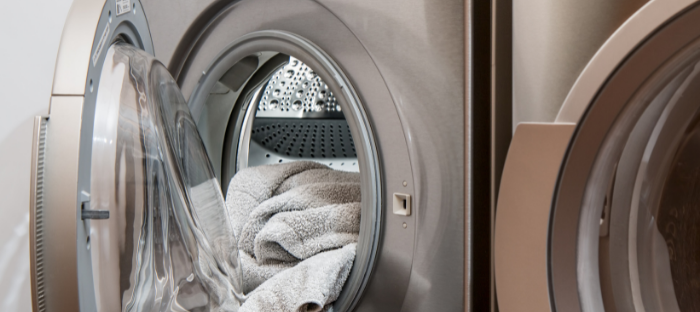
Are there any appliances included?
Some apartments come with appliances, while others don't. If you're someone who doesn't have a lot of money to spend on appliances, then you'll want to make sure the apartment comes with them. This is definitely a question to ask when you're apartment hunting, first time renters can be shy but don't let that be you. You need to be prepared for the cost before you sign a lease.
Are the kitchen and bathroom outdated?
It's worth thinking about. If you're someone who likes to have the latest appliances, then moving into an apartment with older kitchen and bath fixtures might not be for you. The building manager or the landlord should be able to tell you when fixtures were added or renovated.
What are the neighbours like?
This is something that you'll want to take into account before signing a lease. Some neighbourhoods are louder than others, and some can be very friendly. But, as with everything, it's up to preference. If you like having a community around then it's worth asking the landlord about what the other tenants are like. If they will be looking at your credit report, they owe you that much.
When was the last time the apartment's appliances were refurbished?
Even if you found a gorgeous two-bedroom apartment that is within your budget, it's important to know about the last time the appliances were refurbished.
In a new building with a new apartment that's less of a problem but before putting down security deposits you should take a look at how soon a piece of equipment would need to be replaced.
What would happen if my appliances broke?
If you've never rented an apartment before then this is definitely something to ask about. You don't want any surprises after signing a lease so make sure that you're aware of what would happen if your appliances break. Knowing beforehand the rules about appliance care is essential for all renters, especially first-time renters who want an apartment to love and not one where people are always coming and going to fix things.
Is there a washer and dryer inside the unit?
Some people like in-unit washers and dryers while others don't mind going out to use a laundry machine in the basement or outside of the building. This is an important question for younger renters with limited budgets, as it might be cheaper and more convenient to use your own washer and dryer inside your apartment than pay for a laundromat.
HVAC systems
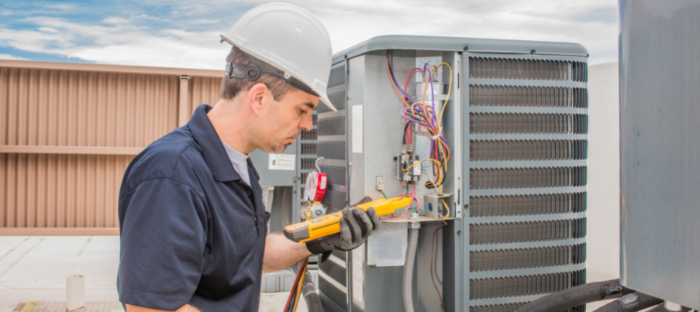
What does HVAC stand for?
HVAC stands for Heating, Ventilation and Air Conditioning. Some buildings have them individually, while others have a central unit that services the entire building.
If you don't know what HVAC means then it's time to google, but all renters should keep this into consideration when looking at apartments for rent. Some HVAC systems are noisy. Others can be expensive to operate.
Who controls the heat?
Are you able to decide how warm or cool you want your apartment to be? Or is it solely in control of the property manager?
Though you can buy things like a space heater or add a small air conditioner to a window, it's best to know how these will add up to your housing costs in the short and long run.
Remember that hot air goes up.
When you rent an apartment, it's good to know that the lower you are in the building, the colder it will tend to be. Renting a basement apartment for example is something people discourage because these tend to be colder because of the way heat moves up through a building. It would be a shame to pay rent and more just to freeze in the winter.
Conversely, if you live high up in a skyscraper, you can rest assured that you will be getting sufficient heat.
What about water damage?
It's generally expected that, if the building you are residing in has had water damage or flooding at any point, then your landlord will have it repaired. That being said, you should definitely do research on this before deciding on a new apartment. Also think about what would happen if there were an appliance leak.
You may want to also ask about the building's insurance policy and what kind of damage it would cover.
Is it a good deal?
Now it's time to talk about money. When you're applying, you need to show your potential landlord quite a few documents like a bank statement, a background check, and more in addition to a security deposit and sometimes first and last month's rent in advance. That's a lot. But it's to help the landlord understand your personal situation.
If you will sign the lease with roommates, then it's also important to specify the share of a month's rent, and budget according to everyone's money situation.
Compared to other similarly priced apartments, is it as big?
Think about your living arrangements in the past and what you're trying to get out of this new apartment. A place in the city must have the features you need while at the same time not cost an arm and a leg in rent payment.
Are the amenities included?
Speaking of features, is the hydro included? Is there an internet provider for the building that you can use? Your monthly rent can cover more than just the cost of being in the building, it's important that you and the landlord agree about all the details before you go ahead and move in.
You want to uncover hidden costs because how much money you spend on rent payments needs to fit into your short and long-term goals.
What are some benefits not featured on the listing?
Does one room have a little balcony? Are there rooms in the basement that tenants can use? If your building is attached to a grocery store, are you eligible for discounts? Just as the landlord will be peppering you with questions and looking at things like your credit score, you can ask them questions too. After all, a security deposit and each month's rent are no small amount of money, it's best to know it's being spent well.
Look into renter's insurance.
Your landlord's insurance policy will not cover your personal belongings in the event of a fire or theft. Renters insurance is very affordable and can help you recover should something happen to your worldly possessions in an unfortunate event.
Never sign a lease without reading it thoroughly!
These are some important questions that all renters should ask before signing any lease agreement. By being informed, you can avoid any nasty surprises down the road. And remember, if you don't understand something in your lease, don't be afraid to ask your landlord for clarification.
Ther are especially important things like rent increases, when first month's rent is due after you move in, the cost of other amenities that you need to consider before moving forward with a rental agreement.
View All Homes For Sale in Greater Vancouver >>>
About Search Home Listings
SearchHomeListings.ca has simplified the home buying and selling process by giving you superior tools with up-to-the-minute information including active homes for sale, sold homes, market reports, and a home valuation tool! We have a team of success managers on standby to support you with setting up your saved home search and agents ready to take you out on a tour. Tap into our industry experts from inspectors, to contractors to interior designers to provide you with the best prices and service possible. Everyone attached to our website has been rigorously vetted and is made up of caring, knowledgeable professionals that work tirelessly to help you to make your home buying experience as stress-free as possible. Contact us today to see how we can help!
Sites We Follow
Categories
Recent Posts

